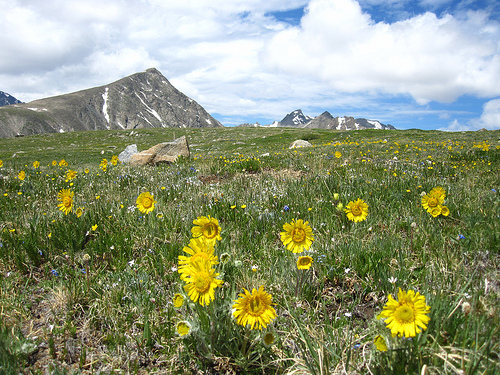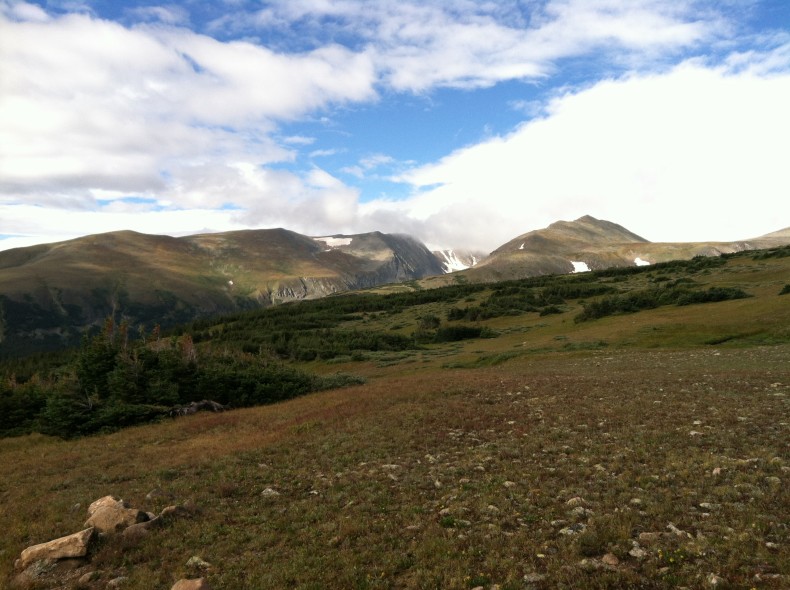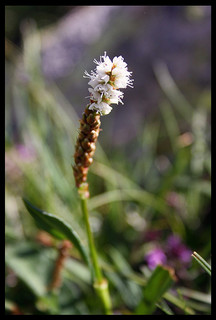Lately, I’ve been writing about how we think of science, and so I’ve been remembering my own experiences as a researcher. This is a redux of a post that first appeared July 12, 2012.
 When I was a biology researcher, the strangers I met at parties and on airplanes were always impressed when I told them how I made my living. Evidently, they envisioned my work as something out of Jurassic Park—a thrilling journey packed with breakthroughs and adventures. Few suspected the truth: doing science is mostly about performing mundane, repetitive tasks.
When I was a biology researcher, the strangers I met at parties and on airplanes were always impressed when I told them how I made my living. Evidently, they envisioned my work as something out of Jurassic Park—a thrilling journey packed with breakthroughs and adventures. Few suspected the truth: doing science is mostly about performing mundane, repetitive tasks.
My last research job was in a human genetics lab. For two years, I labored on a map of human chromosome 18. I did experiment after experiment to decipher the order of DNA along the 18th largest chromosome in the human genome. My job title was Professional Research Associate, but I gave myself a more fitting title, which I hung above my lab bench–Liquid Transfer Specialist.
When I came to work in the morning, I would thaw tiny tubes of frozen reagents on my lab bench and begin the day’s task—transferring swatches of DNA from one tube to another and then another and, finally, into an electrophoresis gel—a jello-like mold infused with chemicals to visualize the DNA fragments I’d injected. Along the way, I would dilute, mix, heat, cool and photograph these DNA cocktails, but essentially my job boiled down to one task — transferring liquid from one place to another.
While the job didn’t require mental acrobatics, it did require diligence and attention to detail. On any given day, I would oversee hundreds of chemical reactions and keep track of thousands of tiny tubes. The most difficult task was keeping everything straight, making sure each cocktail was transferred to the correct tube and mixed with the proper reagents before proceeding to the next step. I often lamented that these chores required just enough attention to preclude wandering daydreams, but not enough thought to keep my mind happily occupied.
But whenever I’d resigned myself to mindless work, something would happen that required me to dust off my brain and think again. Sometimes experiments would fail for no apparent reason. Other times results from one experiment would contradict another, and I’d spend a day or two troubleshooting. My days in the lab were not complete drudgery and boredom. By respecting the mundane repetition of my work as an important step to solving a mystery, I found a certain fulfillment in accomplishing these simple tasks. As my results came in, a coherent story emerged that endowed meaning upon my work.
At times I savored the repetition that comes with the job. As an undergraduate at the University of Colorado, I wrote my thesis on the reproductive system of an alpine plant. Morning after morning one summer, I would catch a 6 a.m. shuttle from Boulder to the Mountain Research Station in the Indian Peaks west of town. From the Research Station, I’d hike with about a dozen other researchers two miles up to our research sites on Niwot Ridge. I’d collect flowers from my three sites on “the Ridge” and then hike up another mile and take samples from my high altitude site. Despite the unpredictable weather and constant wind, I savored these summer days spent above treeline. Each morning I’d wake up eager for the rugged vistas and the subtle changes each day bestowed on the alpine landscape.
 Once I’d collected all the day’s samples, I’d hike back down to the shuttle where I’d hitched my mountain bike to the rack. Mounting my bike, I’d ride the 20 miles to town down a dirt road through aspen groves and wildflower meadows. I couldn’t afford to waste time—my experiments required fresh flowers. I was testing for pollen viability, which necessitated dissecting the plant’s miniscule flowers and counting pollen grains under a microscope. While I thrived on the morning ritual of hiking up the steep ridge, I wasn’t as keen on the repetition of lab work. I counted thousands of pollen grains that summer. Once the short alpine field season was over, the mundaneness of lab work took over. That fall, I embedded hundreds of flowers in plastic and cut them into thin slices that I stained and examined under the microscope.
Once I’d collected all the day’s samples, I’d hike back down to the shuttle where I’d hitched my mountain bike to the rack. Mounting my bike, I’d ride the 20 miles to town down a dirt road through aspen groves and wildflower meadows. I couldn’t afford to waste time—my experiments required fresh flowers. I was testing for pollen viability, which necessitated dissecting the plant’s miniscule flowers and counting pollen grains under a microscope. While I thrived on the morning ritual of hiking up the steep ridge, I wasn’t as keen on the repetition of lab work. I counted thousands of pollen grains that summer. Once the short alpine field season was over, the mundaneness of lab work took over. That fall, I embedded hundreds of flowers in plastic and cut them into thin slices that I stained and examined under the microscope.
 Those tedious hours I spent behind the microscope paid off. My results suggested this plant was losing its ability to reproduce sexually. I had captured a snapshot of evolution in action. I wrote up my results and presented them at a scientific meeting where they withstood the scrutiny of other more seasoned scientists. But the fun of finding something interesting came only after hours of repetitive labor that required little brainpower. Interesting results are seductive, but to get them takes hours of careful repetitive toil.
Those tedious hours I spent behind the microscope paid off. My results suggested this plant was losing its ability to reproduce sexually. I had captured a snapshot of evolution in action. I wrote up my results and presented them at a scientific meeting where they withstood the scrutiny of other more seasoned scientists. But the fun of finding something interesting came only after hours of repetitive labor that required little brainpower. Interesting results are seductive, but to get them takes hours of careful repetitive toil.
In many ways, doing research is like building a house or digging a ditch. Much of the satisfaction comes from accomplishing the goal with acceptable results. Someone digging a ditch for a gas pipe must know how deep and wide the trench must be, and experience shows the digger the best way to accomplish the job. Deciding where to place the ditch takes thought, but digging just takes muscle. Likewise, researchers must plan out their experiments and interpret their results, but collecting the data usually takes just diligence and attention to detail.
Repetition is a thread that unites many otherwise dissimilar trades. Sometimes in my new incarnation as a science writer, I’m expected to present an image of science as a fast-paced titillating pursuit. But my years in research taught me the dull secret behind the hype: science is a slow and tedious process.
***
Images: Niwot Ridge flowers by im me.
Niwot Ridge by Christie Aschwanden
Polygonum viviparum L. by Cristina Rota Moreno
As a laboratory researcher, I understand this kind of mundane work very well. On a bad day, the repetition feels like drudgery. On a good day, though, it takes on a zen quality. When I’m away from the bench too long (for example, when I am locked in my office writing grant applications), I miss that zen feeling.